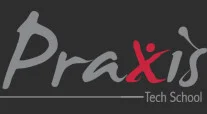Corporate Performance in the Age of AI


The AI Revolution brings both opportunities and formidable challenges. Assessing AI corporate performance is the key to sustainable success. Here’s looking at three models that offer valuable insights into how companies can leverage external expertise, foster internal collaboration, and align strategic priorities.
The integration of artificial intelligence (AI) in global business has become not just a trend but a necessity for companies aiming to thrive in the digital era. With the AI market projected to soar to staggering heights – worth almost $200 billion in 2023 and expected to grow at an annualised rate of around 30% through 2030 by many – it is evident that this umbrella of technology has become a cornerstone of strategic initiatives for businesses across industries. However, despite the widespread recognition of AI’s potential to drive competitive advantage, the journey towards successful implementation is fraught with challenges.
In the pursuit of leveraging AI to its fullest potential, companies must navigate obstacles such as process integration, cost considerations, technological complexity, and talent scarcity. Moreover, the diversity of AI implementation stages among companies has resulted in mixed outcomes, with some achieving remarkable success while others struggle to realise significant benefits. In this context, the imperative for companies to assess their current AI operational readiness and performance cannot be overstated. Such assessments are crucial not only for identifying areas of strength and weakness but also for charting a course towards future success.
In their insightful exploration of strategies for assessing and improving corporate AI performance, J. Mark Munoz and Oliver Degnan, writing for the California Management Review, propose three distinct models: The AI Program Review, The AI Circle, and The AI Strategic Planning Committee. Each of these models offers a unique approach to evaluating and enhancing AI performance within organisations, catering to different organisational needs and priorities.
The AI Program Review
At the heart of the AI Program Review model lies the concept of objective assessment conducted by an external team of professionals. This approach entails a comprehensive evaluation of the company’s AI operational performance, with a focus on key areas such as systems architecture, vendor relationships, data integrity, compliance, and ROI analysis. By leveraging the expertise of a diverse assessment team comprising technology experts, academics, and senior executives, companies can gain valuable insights into their AI initiatives and identify opportunities for improvement.
The AI Program Review serves as a catalyst for organisational introspection, enabling companies to uncover inefficiencies, streamline processes, and optimise performance across various functional areas. Importantly, the recommendations derived from the review process are not only actionable but also tailored to address immediate, short-term, and long-term objectives. By embracing this model, companies can leverage external expertise to drive continuous improvement and ensure alignment with strategic goals.
The AI Circle
In contrast to the external focus of the AI Program Review, The AI Circle model emphasises internal collaboration and knowledge-sharing among employees. This employee-driven initiative brings together executives from different departments who share a common interest in exploring the potential of AI to enhance organisational performance. Led by an AI Circle Head (AICH), the circle serves as a forum for discussing challenges, sharing best practices, and identifying opportunities for innovation.
Central to the success of The AI Circle is its ability to foster a sense of community and camaraderie among employees, transcending departmental boundaries and hierarchies. By encouraging open dialogue and collaboration, companies can tap into the collective wisdom of their workforce and harness the full potential of AI. Moreover, by investing in training and development opportunities for circle members, companies can ensure that their employees are equipped with the knowledge and skills needed to drive AI initiatives forward.
The AI Strategic Planning Committee
For companies grappling with the challenge of integrating AI into their broader strategic vision, The AI Strategic Planning Committee offers a comprehensive solution. This model advocates for the creation of a dedicated committee tasked with developing a company-wide AI strategic plan. Comprising managers and employees from across departments, the committee ensures that AI initiatives are aligned with organisational goals and priorities.
The AI Strategic Planning Committee provides a structured framework for evaluating mission and goals, conducting market analysis, assessing technological infrastructure, and defining implementation strategies. By involving representatives from all levels of the organisation in the planning process, companies can foster buy-in and alignment around AI initiatives. Additionally, the committee serves as a forum for addressing challenges, mitigating risks, and monitoring progress, thereby ensuring that AI remains a core focus of organisational strategy.
—
As the AI Revolution continues to reshape the business landscape, companies face both unprecedented opportunities and formidable challenges. In this dynamic environment, the ability to assess and improve AI corporate performance is paramount to achieving sustainable success. The models proposed offer valuable insights into how companies can leverage external expertise, foster internal collaboration, and align strategic priorities.
Acknowledgment: 3 Models for Assessing and Improving AI Corporate Performance
Know more about the syllabus and placement record of our Top Ranked Data Science Course in Kolkata, Data Science course in Bangalore, Data Science course in Hyderabad, and Data Science course in Chennai.
